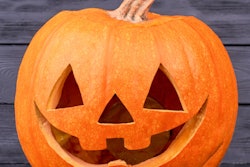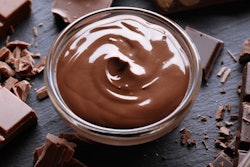
Halloween is today. It's a fun-filled holiday that children really enjoy, especially when, after going around their neighborhood trick-or-treating, they come home and cherish their large assortment of candy. Candy that is often stockpiled for months.
 John Luther, DDS, is the chief dental officer for Western Dental.
John Luther, DDS, is the chief dental officer for Western Dental.But as dental practitioners, we're not nearly as enamored with Halloween, because we know the possible ramifications of eating candy: not only damage to the teeth and gums but also possibly to a child's overall health.
As you know, having healthy teeth and gums has an impact that goes far beyond the mouth. Poor oral hygiene can lead to caries, periodontal disease, and infection, which can impact a patient's heart, lungs, and entire body.
5 tips
You may have prepared material that you use, but here are five tips I pass along to my patients of all ages regarding Halloween candy.
1. Choose candy carefully
I suggest that my patients try to avoid hard candy, such as lollipops, and other sweets that stay in their mouth for a long time. These candies increase the risk for tooth decay.
2. Avoid chewy candy
Chewy, sticky treats, such as caramels or gummies, are particularly damaging as they are high in sugar, spend a prolonged amount of time stuck to teeth, and are more difficult for saliva to break down.
“Remind the parents of your pediatric patients to avoid letting their kids snack on candy throughout the day.”
3. Chocolate is preferable
Chocolate dissolves quickly in the mouth and can be eaten easily, decreasing the amount of time sugar stays in contact with teeth.
4. Eat Halloween candy only after mealtime
Remind the parents of your pediatric patients to avoid letting their kids snack on candy throughout the day. Saliva production increases during meals and helps cancel out acids produced by bacteria in your mouth and helps rinse away food particles.
5. Take preventive steps
Drinking water intermittently helps to keep the sugar from resting in the grooves of their teeth. And your patients might be tired of hearing it, but brushing and flossing their teeth thoroughly before going to bed are crucial.
You've probably got your own list of tips for your patients, but this list can help you and your team with the important questions you'll be asked throughout the season.
John Luther, DDS, is the chief dental officer of Western Dental.



















